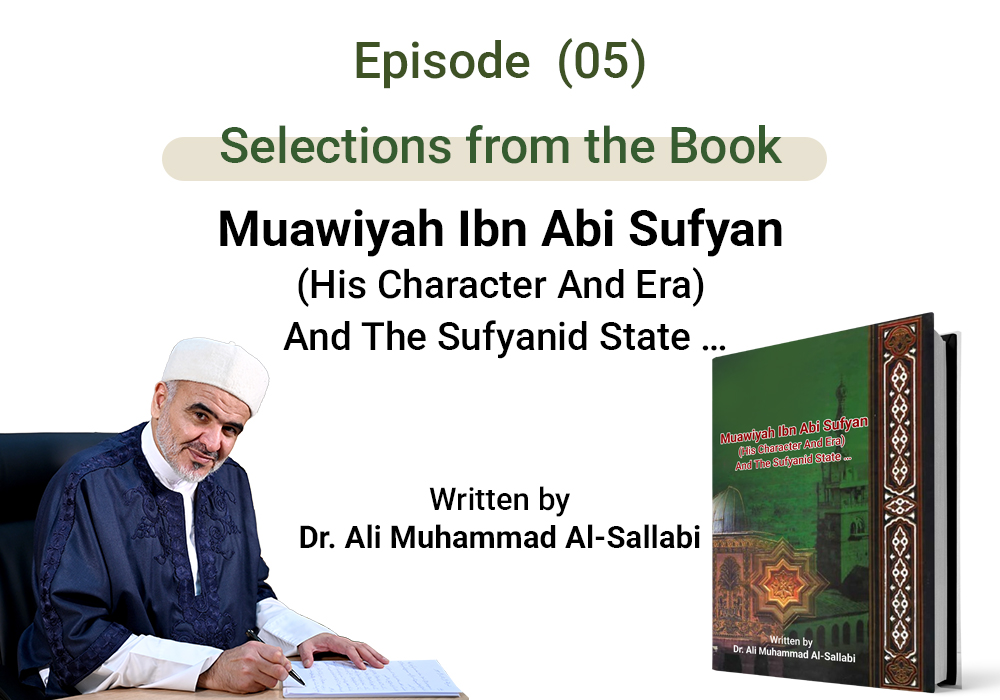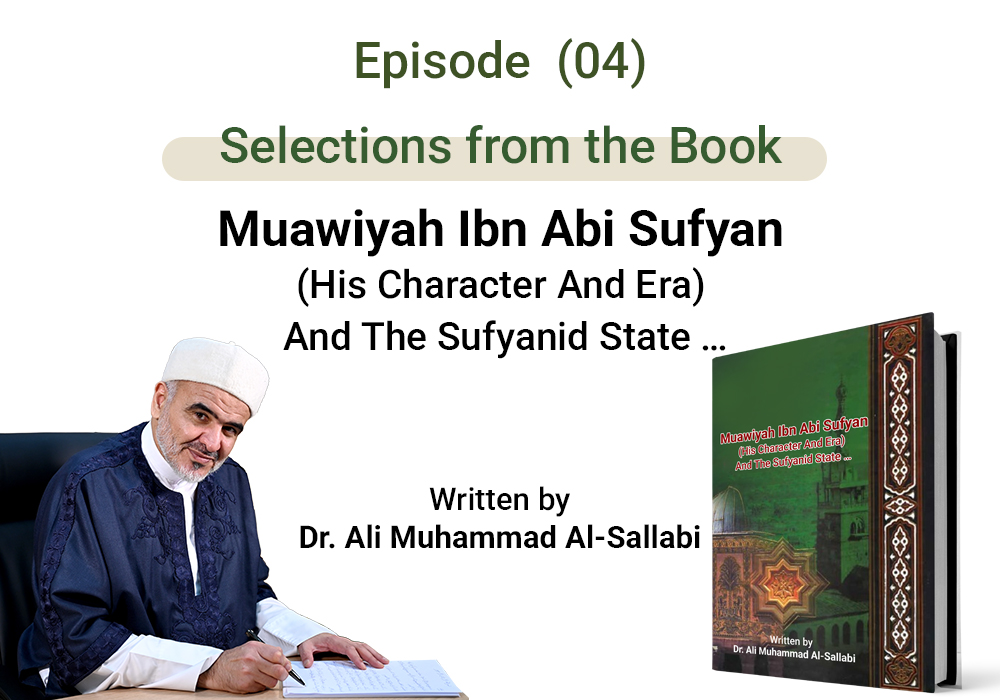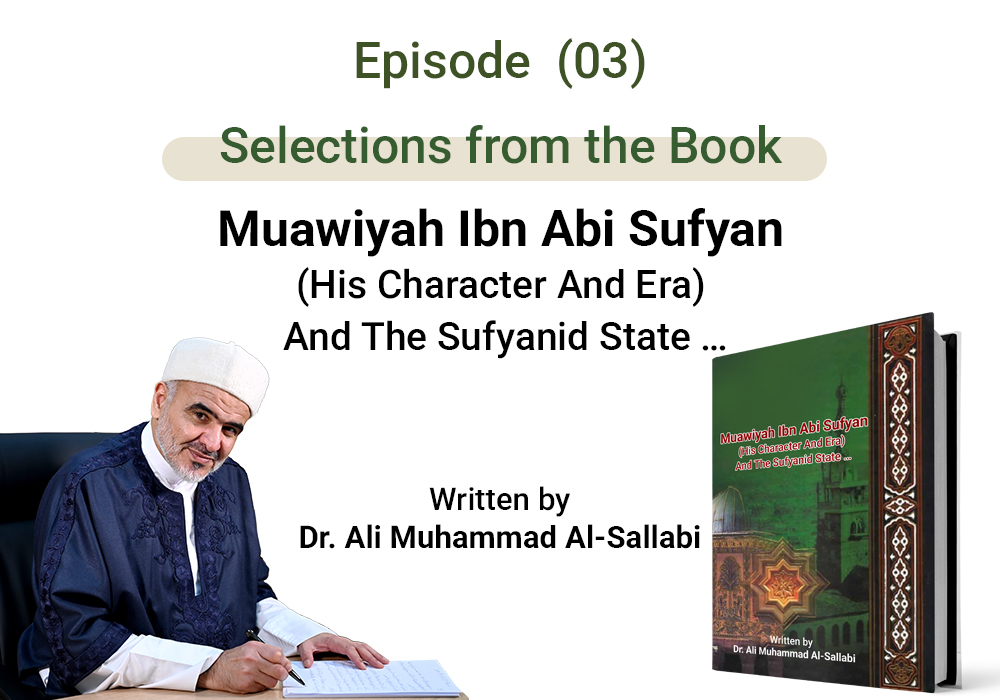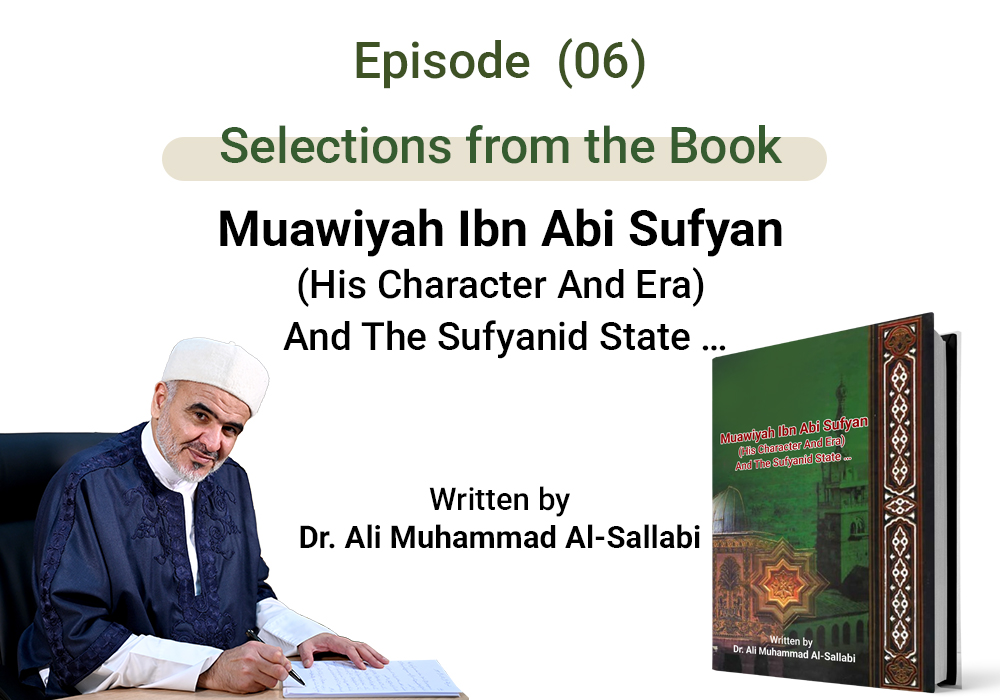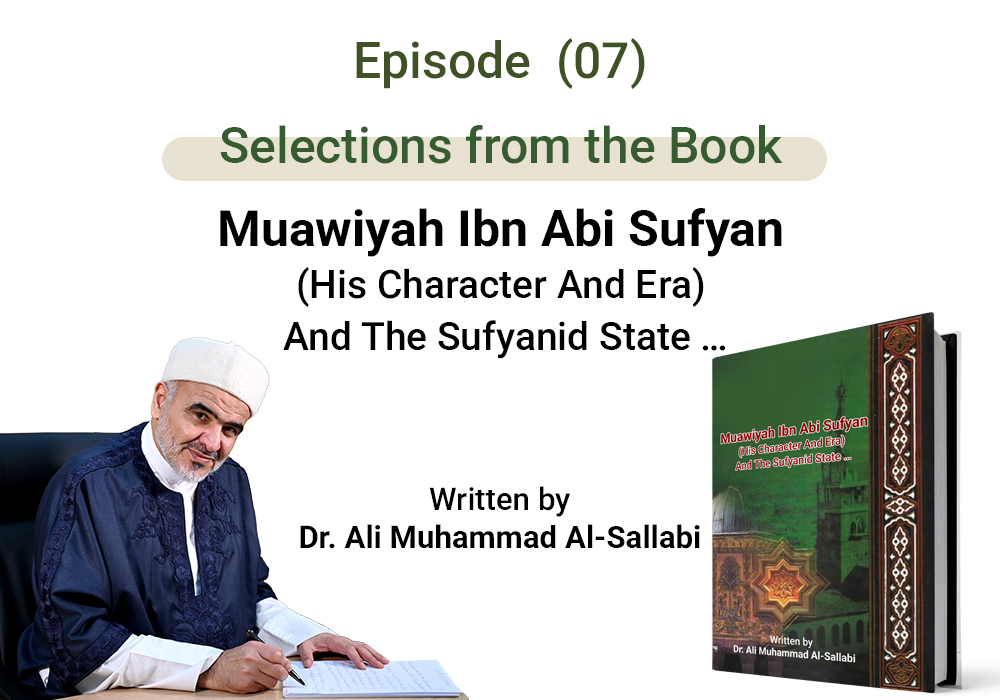The Role Of The Umayyads During The Era Of The Messenger of Allah, may Allah bless him And Grant Him Peace
Selections from the Book Muawiyah Ibn Abi Sufyan (His Character And Era) And The Sufyanid State …
Written by Dr. Ali Muhammad al-Sallabi...
Episode (05)
Despite the fact that many men from the Umayyads embraced Islam early in the call, and despite their sacrifices and migration to Abyssinia, and the fact that all of the Umayyads embraced Islam at the Conquest of Mecca, and the Prophet (peace be upon him) welcomed them and rejoiced at their Islam, and entrusted them with important responsibilities, giving them a place in his state to benefit from their efforts and capabilities—he gave Abu Sufyan a distinction that he gave to no one else from Mecca, when he said: “Whoever enters the house of Abu Sufyan is safe”.
This was a great honor attained by Abu Sufyan, indicating the Prophet’s (peace be upon him) appreciation of leaders and those with influence among their people. The Prophet (peace be upon him) appointed Abu Sufyan over Najran, and took his son Muawiyah as his scribe.
Muslim narrated in his Sahih from Ibn Abbas that Abu Sufyan asked the Prophet (peace be upon him) to appoint him so he could fight the disbelievers as he had fought the Muslims, and to make Muawiyah a scribe before him, and the Prophet (peace be upon him) responded to his request.
The first governor over Mecca—the noblest land of Allah—after its conquest was a man from the Umayyads, Attab ibn Asid ibn Abi al-Ayss ibn Umayyah ibn Abd Shams.
Ibn Ishaq narrated from Zayd ibn Aslam that he said: When the Prophet (peace be upon him) appointed Attab ibn Asid over Mecca, he provided him one dirham daily. He said: “O people! May Allah starve the belly of one who goes hungry for a dirham! The Messenger of Allah (peace be upon him) has provided for me one dirham daily, and I am in need of no one.”
The Messenger of Allah (peace be upon him) also appointed Amr ibn Saʿid ibn al-Aas ibn Umayyah over the villages of Khaybar, Wadi al-Qura, Tayma’, and Tabuk, and the Prophet (peace be upon him) passed away while Amr was still over them. He appointed al-Hakam ibn Saʿid ibn al-Aas over the market of Mecca, Khalid ibn Said ibn al-Aas over Sana’, and Aban ibn Saʿid ibn al-Aas over Bahrain, and the Prophet (peace be upon him) passed away while he was still in charge of it. Aban and Khalid, the sons of Said ibn al-Aas, and Muawiyah ibn Abi Sufyan, along with Uthman ibn Affan, may Allah be pleased with them, were among the scribes of the Messenger (peace be upon him).
In summary: the Messenger of Allah (peace be upon him) passed away while most of the men of the Umayyads were holding various positions—governorship, writing, and tax collection. We do not know of any tribe among the tribes of Quraysh that had more officials appointed by the Prophet (peace be upon him) than they did. The Prophet’s (peace be upon him) appointment of most of the men of the Umayyads is the greatest evidence of their competence and trustworthiness.
As for his (peace be upon him) saying: “Go, for you are the freed ones”, some people have taken these words as a mark of shame specifically upon the Umayyads, using them to taunt them as “the freed ones and sons of the freed ones”. They did not understand that these freed ones and their sons had embraced Islam and that their Islam became good. They had notable roles in supporting Islam during the life of the Prophet (peace be upon him) and afterward during the conquests in the time of the Rashidun Caliphs.
We would like to point out several points related to the description of “the freed ones”, including:
1 - This accusation is the product of a time of intense political partisanship, when hostilities against the Umayyads flared up in the later part of Uthman’s caliphate, and after the rise of Muawiyah ibn Abi Sufyan and his conflict with Ali ibn Abi Talib, may Allah be pleased with them. At that time, the term began to imply that they were people of weak faith who entered Islam out of desire for its spoils or fear of death, aiming to plot against its people and benefit themselves.
2 - Abu Sufyan ibn Harb and his son Muawiyah are not from the “the freed ones” in the precise sense of the word. Abu Sufyan embraced Islam shortly before the Conquest of Mecca, while the Prophet (peace be upon him) and his army were at Marr al-Zahran outside the city. He came immediately after accepting Islam to call his people to peace and surrender. As for his son Muawiyah, some reports confirm that he also embraced Islam before the conquest, but he concealed his Islam—as some did at the time—because of his position with his father, who was leading the fight against the Muslims. It is narrated that he secretly became Muslim on the day of Umrat al-Qada or during the Treaty of Hudaybiyyah. Historians classified them among the freed ones due to the nearness of Abu Sufyan’s conversion to the time of the conquest, and because he was the leader of Mecca, whose Islam was linked with the city’s. Moreover, Muawiyah’s Islam was not widely known until the time of the freed ones after the conquest.
3 - The description “the freed ones” does not imply blame. The freed ones were those who embraced Islam during the Conquest of Mecca and whom the Prophet (peace be upon him) set free. They were about two thousand men, and among them were some who became among the best of Muslims, such as al-Harith ibn Hisham, Suhayl ibn Amr, Safwan ibn Umayyah, Ikrimah ibn Abi Jahl, Yazid ibn Abi Sufyan, Hakim ibn Hizam, Abu Sufyan ibn al-Harith (the Prophet’s cousin who used to satirize him and later became a good Muslim), Attab ibn Asid (whom the Prophet (peace be upon him) appointed over Mecca after its conquest), and others whose Islam became good.
4 - The Islamic view in this regard is that Islam erases what came before it, and that it opens the door to benefit from all talents and capabilities, directing them toward achieving its higher goals, and that it places people according to their rightful status. The best of people in Islam are the best of them in the pre-Islamic period, if they gain understanding. The late acceptance of Islam by Khalid and Amr ibn al-Aas did not prevent them from attaining a high status with the Prophet (peace be upon him). He sent Amr as commander over the Battle of Chains and named Khalid “the Sword of Allah”. This was while preserving the highest rank and status for the early and sincere forerunners in Islam—among whom were members of the Umayyads and others—as well as among the freed ones were also members of the Umayyads and others.
- Ali Muhammad al-Sallabi, Muawiyah Ibn Abi Sufyan (His Character And Era) And The Sufyanid State, pp. 81-85.
- The Islamic World in the Umayyad Era, p. 11.
- Sahih Muslim with Al-Nawawi’s explanation (16/62).
- The Biography of the Prophet, by Ibn Hisham (4/69-149).
- History of Khalifa bin Khayyat, p. 97.
- Sunnah curriculum (3/175-176).
- The Slandered Umayyad State, p. 144.
- The Beginning and the End (11/396).
- Graduation of auditory connotations, pp. 159-162.
- The Classes (2/141-142).
For further information and review of the sources for the article, see:
The Book of “Muawiyah Ibn Abi Sufyan (His Character And Era) And The Sufyanid State” on the official website of Sheikh Dr. Ali Muhammad al-Sallabi:


